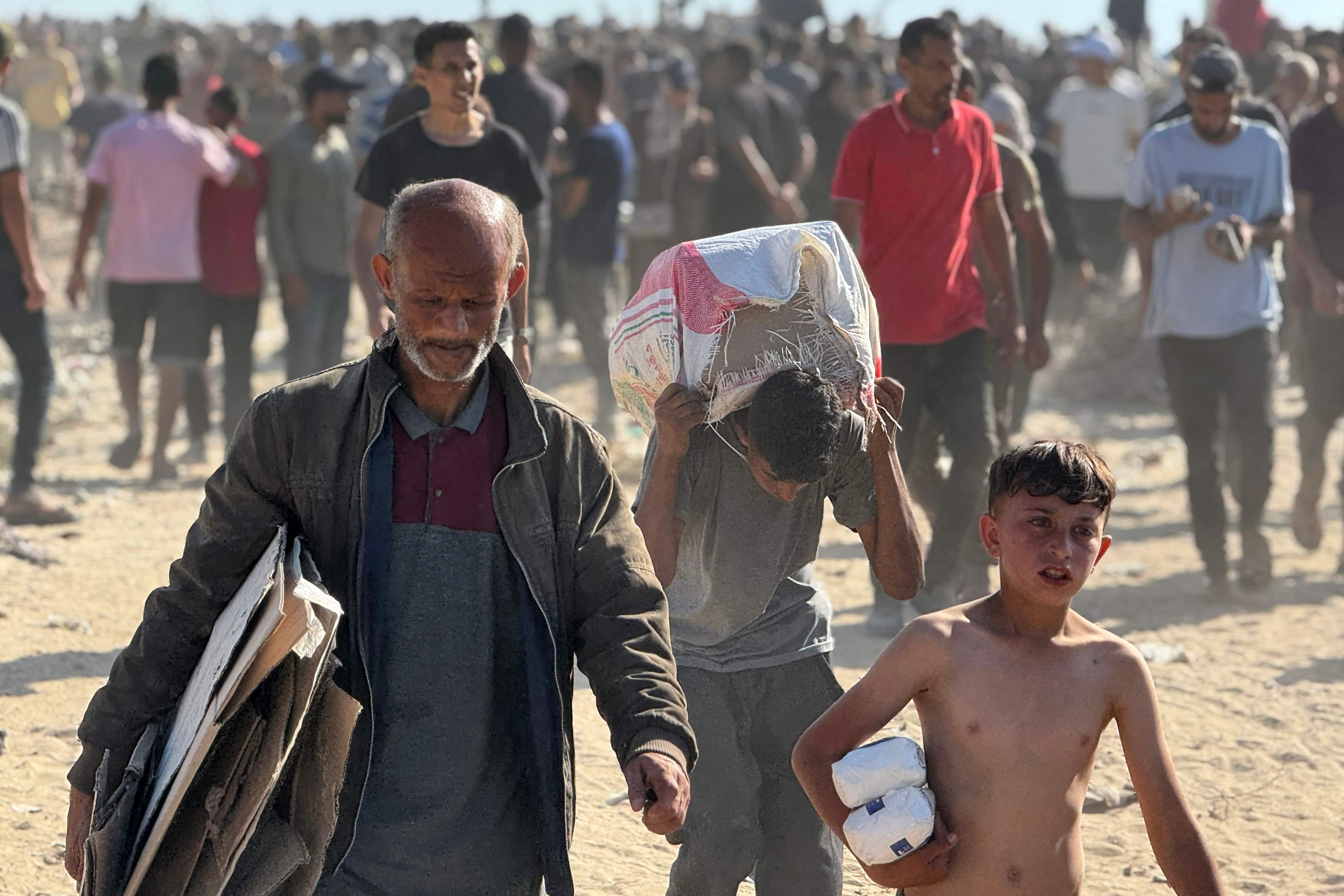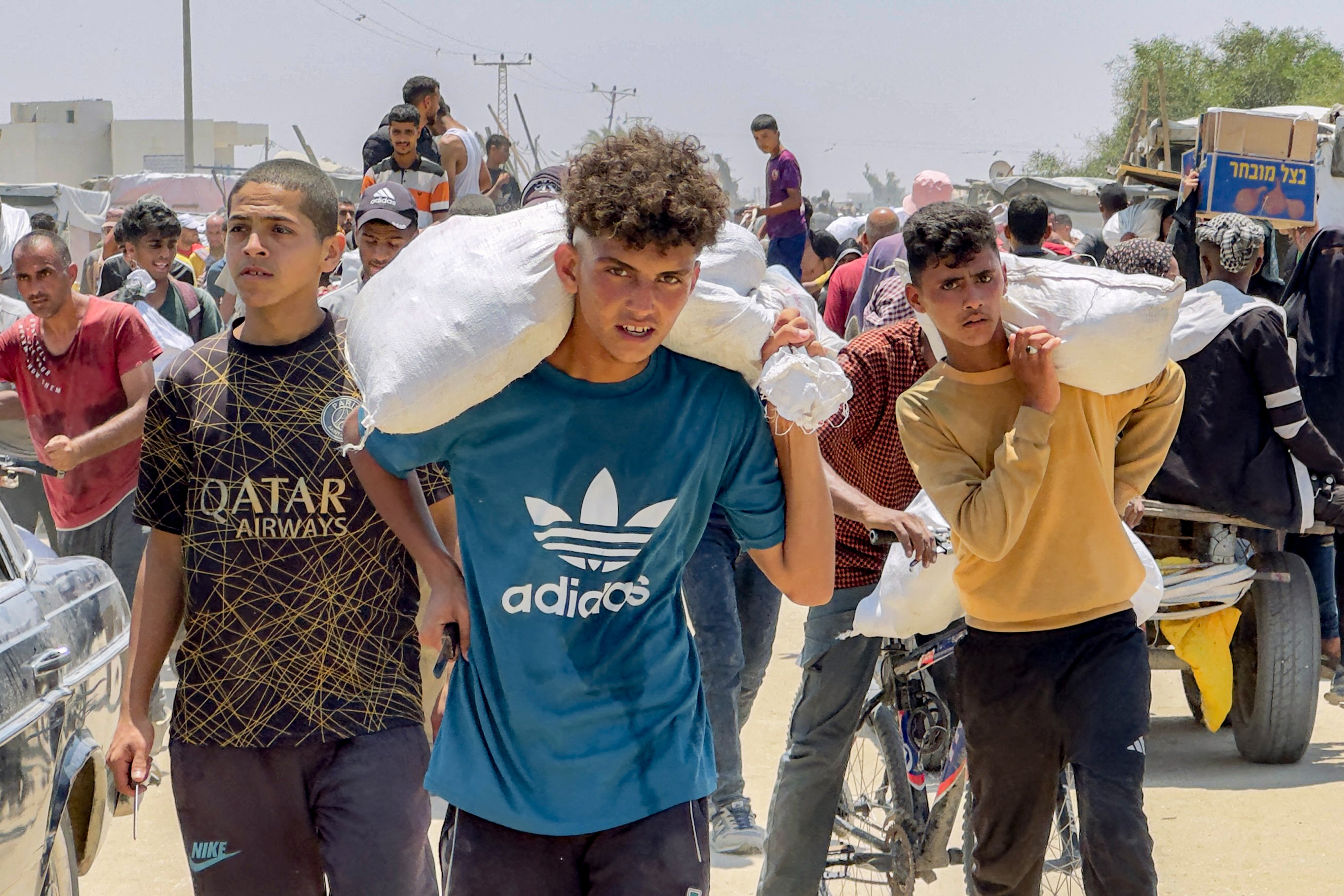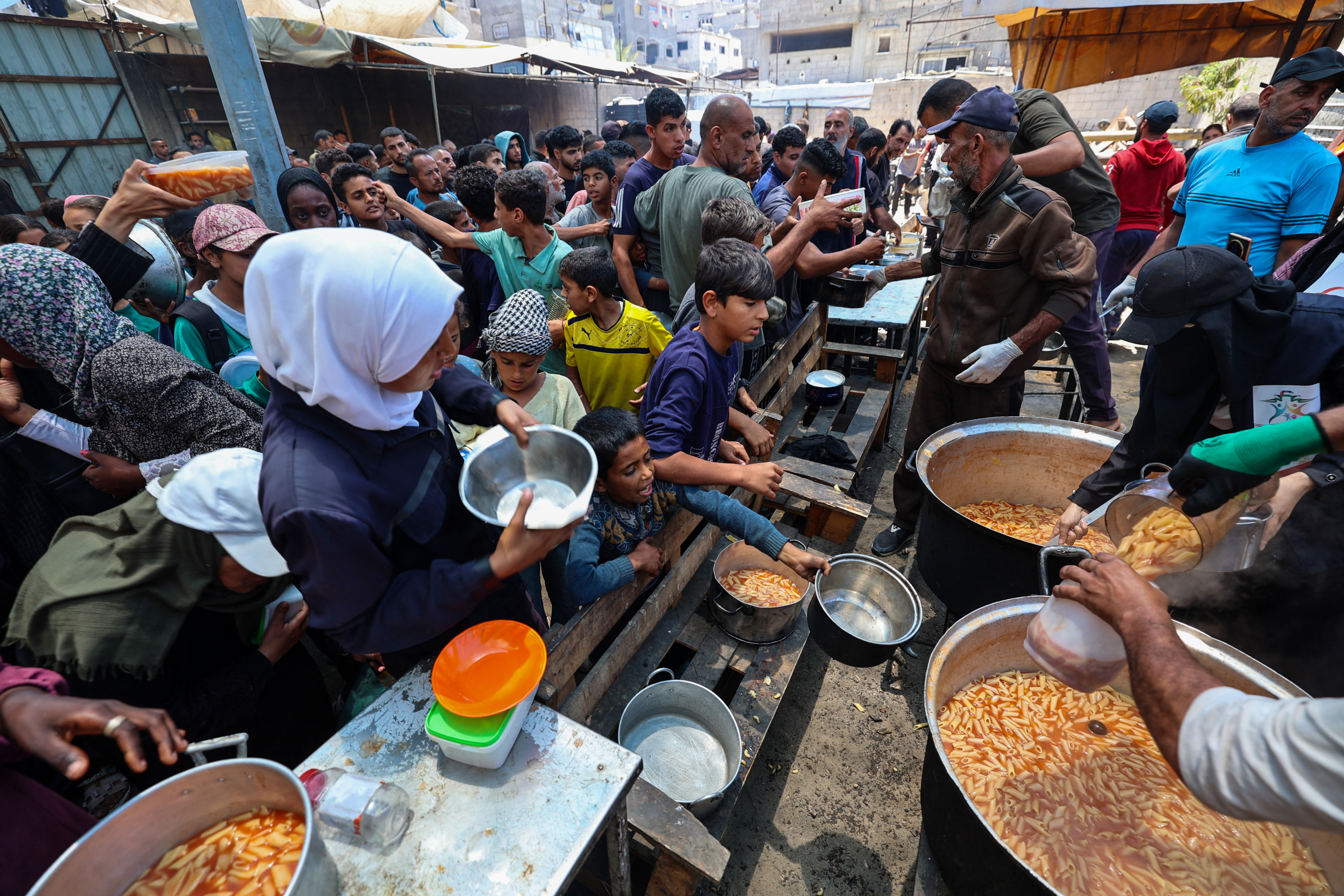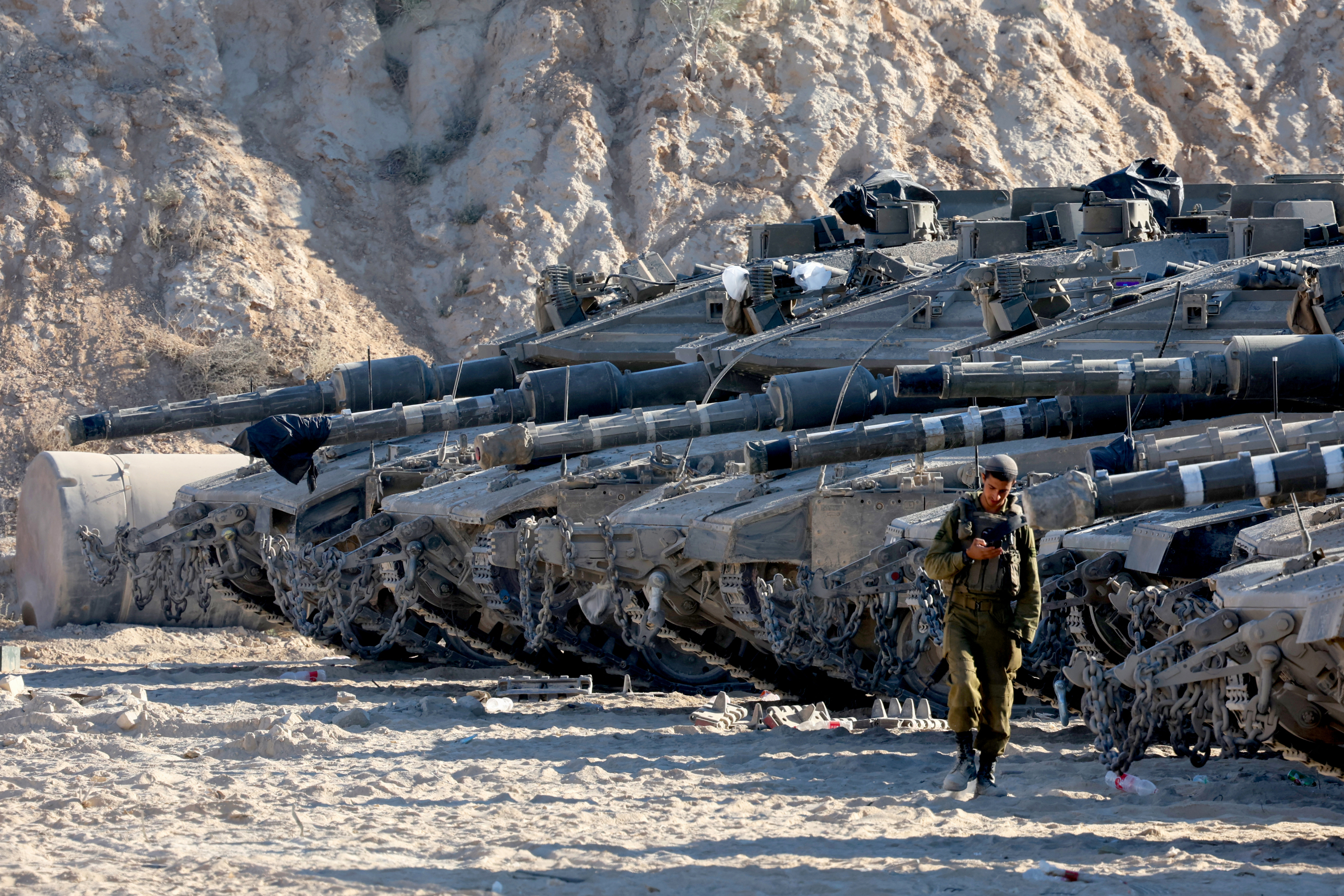Nearly 800 people have died in Gaza since May 27 trying to get aid, according to a new UN report.

Nearly 800 people have been killed in the Gaza Strip since May 27 while trying to get aid , the vast majority of them near posts run by the US- and Israeli-backed GHF foundation, a new UN report said Friday.

Gazans receiving aid from the Gaza Humanitarian Foundation. Photo: AFP
The Gaza Humanitarian Fund (GHF) began distributing food boxes on May 26, following a blockade imposed by Israel for more than two months, which prevented the entry of any humanitarian aid into the territory, despite warnings of the risk of famine.
Between May 27, the date the Gaza Humanitarian Foundation (GHF) launched its operations, and July 7, "we recorded 798 deaths, 615 of whom were near GHF facilities," a spokesperson for the UN High Commissioner for Human Rights, Ravina Shamdasani, told reporters in Geneva.
"We're talking about nearly 800 people killed while trying to access aid," he emphasized. "Most of the wounds were from bullets."
The UN and major aid organizations refused to work with the GHF, claiming it served Israeli military objectives and violated basic humanitarian principles.
The GHF deliveries led to chaotic scenes , and the Israeli army opened fire several times in an attempt to stem the flow of Palestinians desperate for aid.
The foundation, which has hired armed personnel to maintain security at its centers, denies that any incidents have occurred "near" its four distribution sites.

The Israeli offensive, combined with the blockade of humanitarian aid, has left thousands dead in Gaza. Photo: AFP
Since Israel launched its offensive against Gaza on October 7, 2023, in response to the Hamas attack on its territory that day (in which Gazan militants killed an estimated 1,200 people), the Israeli military has killed nearly 57,800 Gazans.
Truce is slow to move due to Israeli demand for control of large parts of Gaza, Egyptian source says Negotiations in Doha for a ceasefire in Gaza between Israel and Hamas, mediated by Egypt and Qatar, are progressing "slowly" due to Israeli demands to remain in the Palestinian territory and maintain military control over a third of its territory, an Egyptian source close to the talks told Efe on Friday.
"Reaching an agreement could take an additional 20 days. Progress is slow, and the main disagreement remains over the deployment of Israeli forces and their withdrawal from Gaza, particularly from the Morag axis, as well as Israel's insistence on remaining in Rafah," the sources said.
These demands would leave more than a third of Palestinian territory, including Rafah and buffer zones in the north and east, under Israeli control.

Palestinians wait for food at a distribution point in Nuseirat. Photo: AFP
Furthermore, the source indicated that another outstanding gap is the guarantees that the ceasefire will continue after the 60-day period that would mark the start of the truce process.
On the positive side, the Egyptian source noted that US pressure "has helped foster positive dialogue on access for humanitarian aid and troop withdrawal from the territory."
"The Israeli side has softened its original position on the issue and presented a new map that includes a reduced presence on the Morag axis—a line parallel to the Egyptian border that separates the city of Rafah from the rest of the Palestinian territory," the source said.
For its part, Hamas insists on the complete withdrawal of Israeli occupation troops from the so-called Philadelphia Corridor , another strip of land along the Egyptian border, while Israel insists on remaining there, in Morag, and maintaining control of the Rafah area.
The map presented by Israel, according to the source, encapsulates the territory around Rafah, where Benjamin Netanyahu's government has announced it intends to establish a "displaced persons camp."
This plan to relocate the Gazan population to the ruins of Rafah "would de facto create massive concentration camps," the UN agency for Palestinian refugees (UNRWA) warned on social media Friday.

Israeli army tanks take up positions on the border between Israel and the Gaza Strip. Photo: AFP
"If this happens, it will push tens of thousands of people who have already been displaced many, many times during this war. But also for generations, it will push them further south and, from there, into the unknown ," UNRWA communications director Juliette Touma also said in an interview with the Qatari network Al Jazeera.
Israel's intention is to push some 600,000 Palestinians into the remains of this devastated city, near the Egyptian border, and then extend the forced displacement to the entire population.
The proposal on the table being discussed in Doha calls for a 60-day truce, during which Hamas and Israel must negotiate its continuation within a permanent ceasefire. The document stipulates that if the parties fail to reach an agreement on the day after the truce, it could be extended until they reach one.
eltiempo

%3Aformat(jpg)%3Aquality(99)%3Awatermark(f.elconfidencial.com%2Ffile%2Fbae%2Feea%2Ffde%2Fbaeeeafde1b3229287b0c008f7602058.png%2C0%2C275%2C1)%2Ff.elconfidencial.com%2Foriginal%2F848%2F45f%2Fe13%2F84845fe13d8bd5b06c999cffa8763a8e.jpg&w=3840&q=100)



